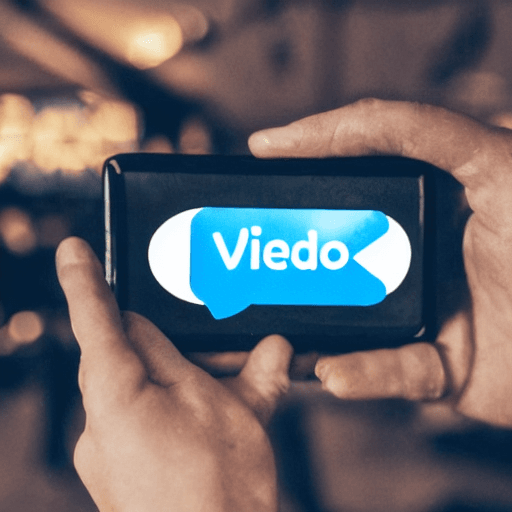

In today’s digital landscape, social media has become an indispensable tool for businesses of all sizes. However, simply having a presence on platforms like Facebook, Instagram, TikTok, and YouTube isn’t enough. Consumers are bombarded with information, and capturing their attention requires a strategic approach. One of the most effective strategies for achieving this is through video marketing. This article delves into the critical role video plays in building brand loyalty on social media, exploring how compelling video content can transform passive viewers into devoted customers. We’ll examine the science behind video engagement, explore different video formats, and provide actionable insights for developing a successful video strategy.
Traditionally, marketing focused on broadcasting messages to a large audience. The rise of social media has shifted this paradigm. Now, consumers crave authentic connections and personalized experiences. They want to feel like they’re part of a community, not just recipients of advertising. Video, with its ability to evoke emotion, tell stories, and demonstrate value, is uniquely positioned to meet this demand. Brands that leverage video effectively can forge deeper relationships with their customers, fostering loyalty that extends far beyond a single transaction. The key is to move beyond generic promotional videos and create content that resonates with your target audience’s interests and needs. This isn’t just about creating videos; it’s about building a genuine connection.
Several factors explain why video consistently outperforms other forms of content on social media. Firstly, video is inherently more engaging than text or images. Our brains process visual information much faster than written information. Studies have shown that viewers retain 95 percent of a message when it’s presented in a video, compared to only 10 percent when reading text. This is because video activates multiple areas of the brain, creating a richer and more memorable experience.
Secondly, video taps into our emotional responses. Humans are wired to respond to emotions, and video is exceptionally good at triggering these responses. A well-crafted video can evoke feelings of joy, sadness, excitement, or even nostalgia, creating a powerful connection with the viewer. This emotional connection is a crucial driver of brand loyalty.
Thirdly, video is highly shareable. People are more likely to share videos with their friends and family, expanding your brand’s reach organically. This viral potential is a significant advantage in today’s social media environment.
It’s important to acknowledge the shrinking attention spans of social media users. The average user spends a very limited amount of time on any given platform. Therefore, your videos need to grab attention quickly and hold it for as long as possible. This means starting with a strong hook – a captivating visual or a compelling question. Keep your videos concise and focused, and avoid unnecessary fluff. Aim for videos that can be viewed in their entirety, ideally within 60-90 seconds, especially on platforms like TikTok and Instagram Reels.
There’s a wide range of video formats that can be effective on social media, each suited to different platforms and objectives. Understanding these formats is crucial for developing a targeted video strategy.
At the heart of effective video marketing is storytelling. People connect with stories far more readily than they do with facts and figures. When you tell a compelling brand story, you’re not just selling a product or service; you’re building an emotional connection with your audience. Your brand story should articulate your values, your mission, and your unique perspective.
Consider these elements when crafting your brand story: Authenticity – Be genuine and transparent. Relatability – Make your story relatable to your target audience. Emotional Resonance – Evoke emotions that connect with your audience’s values and aspirations. Conflict and Resolution – A classic storytelling structure that can be applied to many brand narratives.
Example: Patagonia’s videos consistently showcase their commitment to environmental activism. These videos aren’0 just about selling outdoor gear; they’re about inspiring a movement. This resonates deeply with Patagonia’s target audience, fostering incredible brand loyalty.
It’s crucial to track the performance of your video content to understand what’s working and what’s not. Here are some key metrics to monitor:
Use social media analytics tools to track these metrics. Experiment with different video formats, lengths, and calls to action to optimize your performance. A/B testing is a valuable technique for identifying what resonates most with your audience.
Video marketing has fundamentally transformed the social media landscape. Its ability to engage audiences, tell compelling stories, and drive brand loyalty makes it an indispensable tool for businesses of all sizes. By understanding the different video formats, crafting authentic brand stories, and consistently measuring your results, you can harness the power of video to build a thriving online community and achieve your business goals. The brands that embrace video and prioritize storytelling will be the ones that ultimately win the hearts and minds of their customers.
Ready to elevate your social media strategy with video? Start by identifying your target audience, defining your brand story, and experimenting with different video formats. Don’t be afraid to get creative and have fun! The most important thing is to connect with your audience on a genuine level.
Tags: video marketing, brand loyalty, social media, video content, customer engagement, storytelling, brand relationships, video strategy, social media marketing
0 Comments